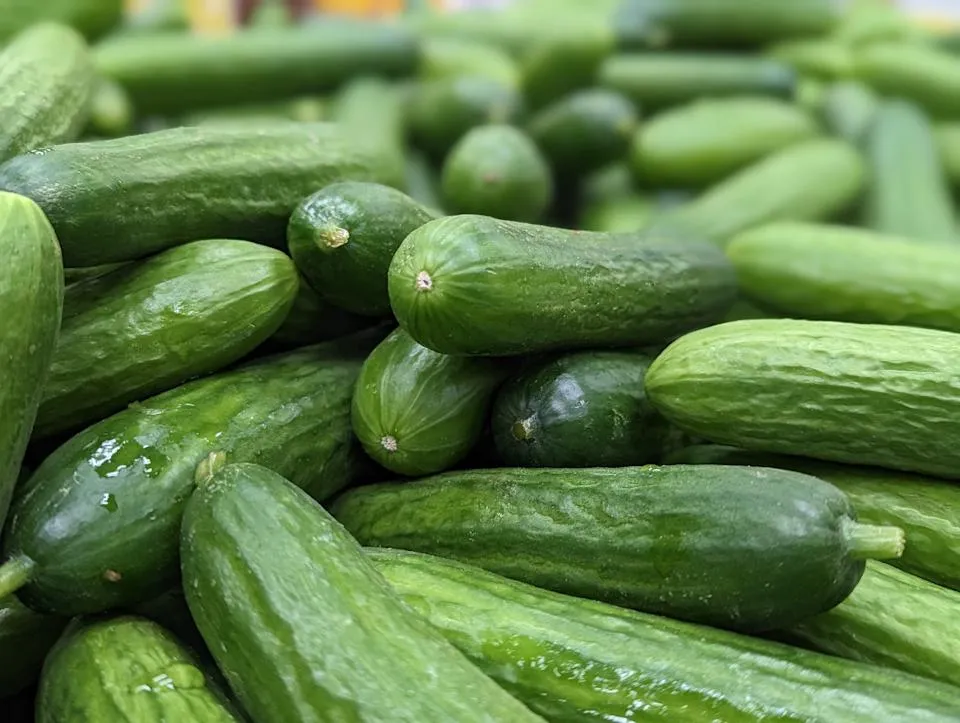CHICAGO — While Americans prepare for summer picnics and salads, a new Salmonella outbreak linked to cucumbers is overshadowing grocery shelves. The U.S. Food and Drug Administration (FDA) announced a recall of cucumbers grown by Bedner Growers in Florida and distributed by Fresh Start Produce Sales after they were associated with illnesses in 26 people across 15 states, including Illinois. This outbreak, reproducing last year's crisis when the same producer's cucumbers caused 551 cases, raises consumer concern and questions about the food safety system. In states where farmers' markets and grocery stores are community centers, Illinois residents are forced to review their vegetable supplies, and restaurants are checking their suppliers.
Cucumbers under suspicion: What is known?
The cucumbers subject to recall were grown by Bedner Growers in Boynton Beach, Florida, and sold through Fresh Start Produce Sales from April 29 to May 19, 2025. They were distributed to retail chains, distributors, wholesalers, and food service establishments nationwide, including Bedner’s Farm Fresh Market stores in Boynton Beach, Delray Beach, and West Palm Beach. According to the FDA, these cucumbers could have been sold loose or in small packages, often without labels indicating brand or expiration date. For businesses, they were labeled as "super," "select," or "ordinary," complicating traceability.
The Salmonella Montevideo outbreak, which affected 26 individuals—including nine hospitalizations—was identified following an FDA inspection in April 2025. Samples from Bedner Growers showed the presence of bacteria identical to those found in ill persons. Illinois, along with Florida, Ohio, and North Carolina, is among the states with the highest number of cases, reporting three to four infections. According to the Centers for Disease Control and Prevention (CDC), the sick, including several who consumed cucumbers on cruise ships from Florida, began experiencing symptoms from April 2 to 28.
Repeating history: Why is Bedner again at the center of scandal?
This is not the first outbreak linked to Bedner Growers. In 2024, their cucumbers, along with products from Thomas Produce Company, caused a widespread Salmonella Africana and Salmonella Braenderup outbreak that affected 551 people across 34 states, including 60 cases in Florida and several in Illinois. At that time, the FDA found bacteria in untreated canal water used for irrigation as well as in the farm soil. The current investigation, triggered by the previous crisis, confirmed a troubling trend: samples from Bedner again contained salmonella, this time the Montevideo strain, matching clinical isolates from ill individuals.
Industry insiders in food safety note that Bedner’s problems might be a symptom of a broader crisis. “Using untreated water for irrigation is a known problem in Florida, where agriculture depends on canals prone to contamination,” says a source close to the FDA investigation. The lack of strict water standards and inadequate oversight of mid-sized farms like Bedner create gaps in the system, through which bacteria can reach consumers.
Danger on the plate: What risks do consumers face?
Salmonella is not just an inconvenience. It causes diarrhea, fever, vomiting, dehydration, and abdominal cramps that can appear six hours to six days after consuming contaminated food. Though most recover within four to seven days, children under five, the elderly, and immunocompromised individuals face the risk of severe illness. In this outbreak, the hospitalization rate is 35%, nearly double the average for salmonellosis, raising concerns among experts. “This strain causes more serious outcomes than usual,” notes Eric Hagerman, a food safety attorney.
The FDA and CDC urge consumers to discard cucumbers if their origin is unknown. “If you cannot confirm your cucumber is not from Bedner Growers, it’s better not to take risks,” warn FDA officials. Restaurants and retail chains are instructed to inform customers about the risk and disinfect surfaces that contact cucumbers. Special attention is paid to cruise ships, where several ill individuals had consumed contaminated produce. In Chicago, where farmers' markets and restaurants rely heavily on fresh vegetables, owners are hurriedly checking their suppliers, fearing reputational damage.
Illinois at risk
For Illinois residents, where several cases have been reported, the outbreak is especially concerning. The state, known for its love of local products, depends on distributors sourcing vegetables nationwide. “We see cucumbers from Florida reaching Chicago shelves within days,” says Laura Wilson, a grocery co-op manager in Evanston. “But without clear labeling, it’s hard to tell where they come from.” Local health departments are advising restaurants, from trendy downtown establishments to suburban snack bars, to review their inventories and inform customers of potential risks.
Residents like Anita Ramirez of Schaumburg are already checking their refrigerators. “I bought cucumbers at the supermarket last week, but there’s no label,” she says. “Now I’ll just throw them out — better safe than sorry.” Such sentiments reflect a growing concern: confidence in food safety is declining, especially after repeated outbreaks from the same producer.
Path to resolution: Are recalls enough?
The recall announced by Bedner Growers on May 19 covers cucumbers sold at their markets before May 14, as well as products distributed through Fresh Start. The company assures that the current cucumbers on the market are safe since Bedner’s growing season has ended. Meanwhile, Fresh Start is actively contacting customers to facilitate product withdrawal. However, the lack of clear information on where exactly the cucumbers have been distributed complicates efforts. “The FDA still does not know the full supply chain,” says an agency source. “It’s like looking for a needle in a haystack.”
Experts are calling for systemic changes. “The problem is not just Bedner, but how we grow and distribute food,” says Dr. Sarah Cook, an epidemiologist at the University of Chicago. She advocates for increased water testing on farms and mandatory labeling for fresh produce. Until such reforms are implemented, consumers remain vulnerable.
What’s next for Illinois and America?
As the FDA and CDC untangle supply chains, residents of Illinois and other states are forced to exercise caution. The FDA recommends checking the origin of cucumbers in restaurants over the coming week and consulting healthcare providers at the slightest symptoms of salmonellosis—from fever to dehydration. For businesses, especially in Chicago where the gastronomic scene is an economic driver, the outbreak could lead to a temporary decline in confidence in fresh vegetables.
This crisis is not just about cucumbers but about the fragility of systems meant to protect Americans from plate to table. The second outbreak by Bedner Growers in two years challenges regulators, farmers, and distributors: can they learn from their mistakes? For Illinois families preparing dinners or packing lunches, the answer is not just policy but health and trust. In a world where food should be a source of joy, not fear, the fight for safe products remains as urgent as ever.



